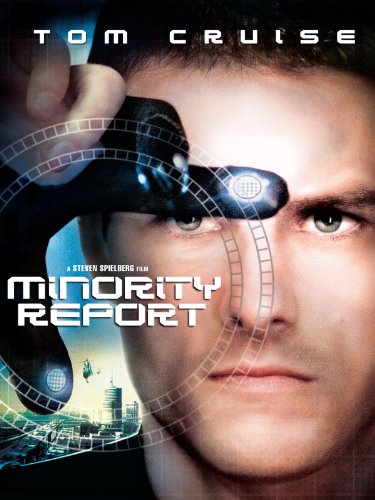Who Cares About Skynet? I Fear Cyborgs
The Skynet Problem
I have been writing about time-paradoxes all week, so it seems appropriate to talk a bit about dystopian futures.
Skynet is so 1984.
As much as the idea of being responsible for "creating our own successors" feeds our collective narcissism, I am pretty sure the threat is not robots becoming intelligent as much as it is us becoming human-machine hybrids.
I can't help it that Hollywood is boring and likes to milk every red cent out of tired 1950's futuristic visions. But, I am pretty sure Skynet is "The Jetsons" of possible dystopian futures.
AI may or may not take off, but we already know humans and machines can operate together to form a suggestion engine + decision-maker (see Siri and Cortana).
Brain-Computer Interface
So, Brain-Computer interface has been developed to allow brain signals to communicate directly through computers to manipulate external objects using the power of the machines.
Mostly, this is in development to help, for instance, paraplegics connect their thoughts and impulses through computers to mechanical devices so they can interact with the world around them (as if they had functional arms and legs).
This obviously has great potential to do much good for many people. So, of course, the military is also working on it :).
But, regardless of the military implications, once regular folks see that Brain-Computer interfaces work for people with disabilities, they will want to become integrated too.
This is a simple matter of efficiency. Who wants to pull out their phone and ask SIRI when they can simply think a question and have SIRI tell them the answer? Who wants to work out complicated maths when we can just outsource those workflows to our internal helper?
Why find a remote control when you are a remote control?
In old school Scifi, becoming a Cyborg was more about replacing aging human parts with cool metal robot parts (and this might still be an outgrowth). But, by far, the most likely reason people will become cyborgs is to be able to utilize Brain-computer interfaces IMHO.
But, why is this scary?
More Cyborgs, More Problems
The first and probably most insidious casualty of widespread adoption of brain-computer interface could be our freedoms.
Think about it this way, everything that you think and everything that you do most likely would leave an actual record. And given how public opinion has rapidly turned in favor of every single Government attempt at cracking phone data for "security" reasons, I have a hard time imagining that there are any real protections against hacking brain-computer interface records.
And remember, as these interfaces became more and more ubiquitous and sophisticated they could be like a human Go-Pro camera and, to some extent, a record of your thoughts as well. You do not need to see the movie "Minority Report" to get how disastrous it could be for all your thoughts and actions to become open to possible subpoena and/or hack.
In some ways, it would be like never really being free to choose, because you always know that choice is mediated by the fact that you are actually being watched (in a sense by you).
Usually, this is when someone says "well, if you aren't doing anything wrong, you don't have anything to hide." Except that we all do because it is not just the things that are "illegal" or "wrong" that can be used against us or used to influence our decision-making.
Just think of everything you have ever done in your life being recorded in your (much more personal and embarrassing) browser history. In an odd way, it would be like living every minute of life in Zamyatin's glass apartment building (We).
And here is the scary thing, despite this, I have little doubt that widespread adoption would be the result of commercial applications of the brain-computer interface.
We know our smartphones can be used to track and even listen to us, but we love our smartphones. We never fear the consequences because we never imagine ourselves in the situations that could cause us problems (until it is too late). We willingly trade our privacy rights wholesale for easier access to information and goods.
The sheer number of difficult things that brain-computer interfaces would make simple for us to accomplish makes widespread adoption likely. This means that, for the vast majority of adopters, they would have willingly participated in implementing the most comprehensive mass surveillance system of all time.
And, let us not forget that these will be commercial products. If you are bothered at all by algorithmic tracking online, just wait until every data point from your actual life is gathered and parsed algorithmically then fed back to you in the form of marketing and advertisements (or actual products delivered to you as you think about them).
I guess what I really fear is living in a world in which we are entirely safe. Living in a world where everyone predictably engages in only predictable and consumer-friendly ways. Living in a world where people only act as they are supposed to act. Where meaningful protests are unlikely (and easily punished) and where Snowden's could never have blown the whistle because we have become the whistle in plain sight.
What do you think the most likely dystopian future is? What do you think of our cyborg potential and the danger of brain-computer interface? Let me know what you think, leave a comment!




